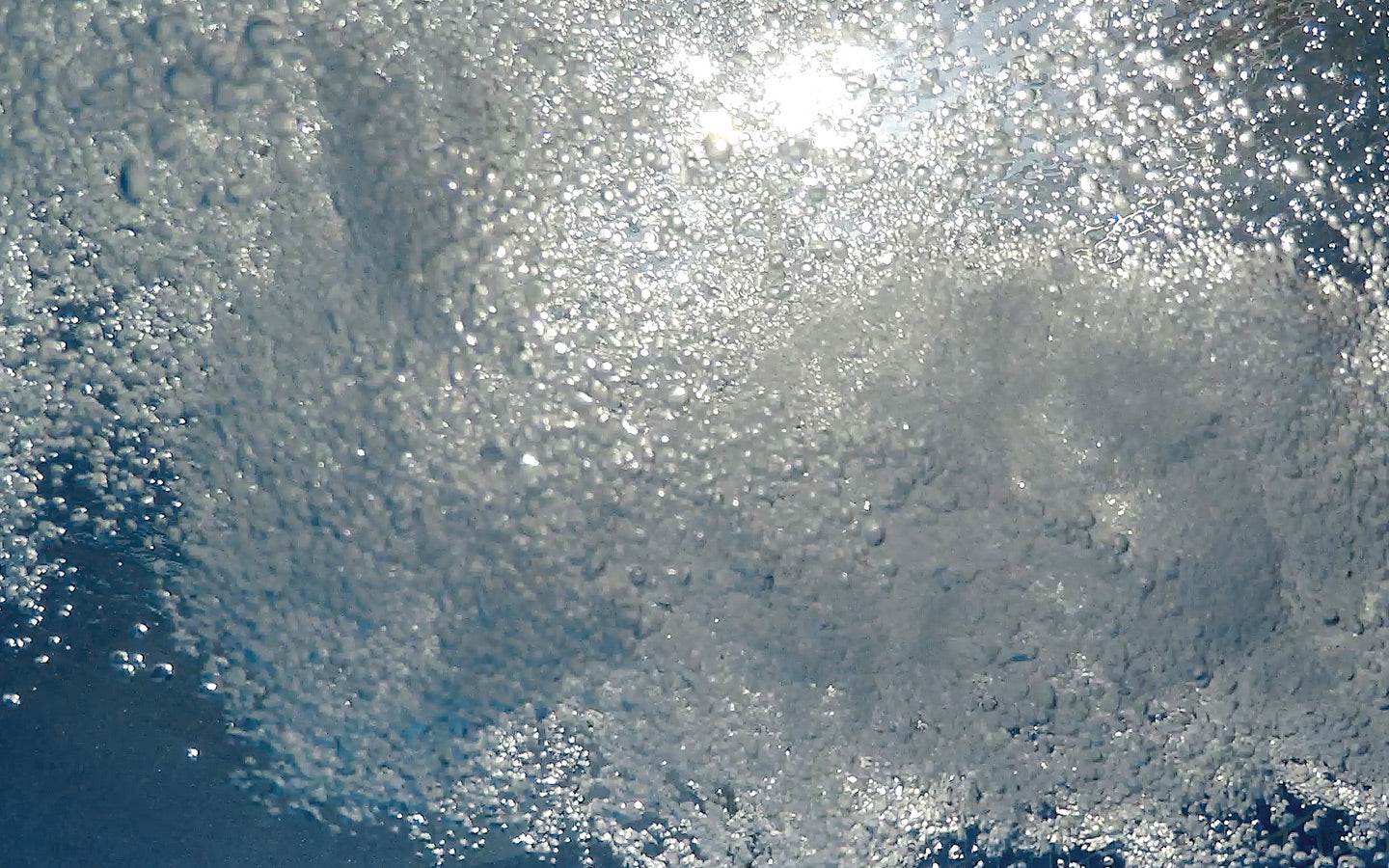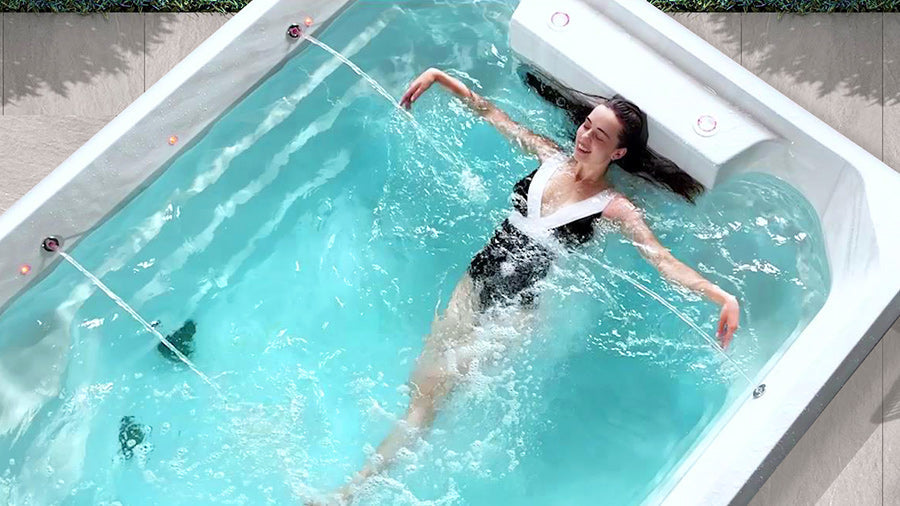Discover the benefits of hydrotherapy spas and pools, a time-tested practice often called 'the water cure'. Learn how spa hydrotherapy can improve your well-being and treat various ailments with our expert insights in this article.
What is Hydrotherapy
The term "hydrotherapy" is a combination of the Greek words hydro (water) and therapy (treatment). In layman's terms, hydrotherapy refers to the therapeutic use of water. Which can include both cold and warm water.
Hydrotherapy refers to the technique of soaking or immersing the body in a tub or pool of warm, relaxing water.
Hydrotherapy can benefit you in a variety of ways. The warmth of the water relaxes your muscles and relieves joint pain. This allows you to work out more effectively as the weight of your body is supported by the water. This helps to reduce discomfort and promote the joint's range of motion.
Is Hydrotherapy the Same as Swimming?
Although it appears to be the same as swimming, the difference is that the individual is required to complete various exercise exercises while in a pool of warm water, which is approximately 33–36 degrees Celsius. This temperature range is substantially warmer than a typical swimming pool, which has a temperature range of 26°C to 28°C.
In today's hospitals, hydrotherapy is performed and offered as an alternative method of treatment for some sick patients in the physiotherapy department.
The History of Hydrotherapy
Hydrotherapy has been practised since ancient times. And well documented in ancient Egypt, Persia, Greece, the Roman Empire, and China in various forms. Hydrotherapy was most likely employed even before the beginning of recorded history.
Ancient Hydrotherapy practices differed to some extent. Some soaked in essential oil-infused water. While others sought therapy in public baths. And others brought warm water hydrotherapy to smaller, more personalised pools or vessels.
Early medical practitioners also used ancient hydrotherapy. This was often referred to as "the water cure," to treat a range of ailments.
Hydrotherapy was also used as a treatment for medical diseases. Such as emotional and mental healing and overall health and wellness.
The Healing Power of Power of Water
Water's regenerative and healing properties have been extensively studied. Many people in Australia are now well aware of the advantages of the healing power of hydrotherapy.
Warm water has been proven to be an excellent approach to relieving aches and pains caused by tight joints and strained muscles. The buoyancy of the water reduces gravity's effects. This allows for a considerably wider range of exercises and movements than traditional exercise. And with the addition of water accessories, the type of these workouts can be varied considerably.
Hydrotherapy can help to reduce pain and edema while also improving function, strength, and range of motion. In some people, it's been shown to boost mood and sleep. While in others, it has been shown to increase fitness and weight reduction.
The Health Benefits of Spa Hydrotherapy
Hydrotherapy can benefit you in a variety of ways. And a water-based training regimen can be tailored to an individual's needs by exercise physiologists and physiotherapists.
- The warmth of the water relaxes your muscles and relieves joint pain, allowing you to work out more effectively.
- The weight of your body is supported by the water, which helps to reduce discomfort and promote joint range of motion.
- Water can be utilised to offer resistance to your joints as you move them. Muscle strength can be improved by pressing your arms and legs against the water.
- Acute pain - wry neck, lumbar back injuries, ankle sprains, shoulder strains
- Post-operative conditions such as shoulder/knee surgery, hip/knee replacements, and back surgery
- Hip mobility and stability • Injury prevention in general
- Spa Hydrotherapy is proven by scientific research to increase strength and general fitness in persons with various forms of arthritis.
Additional Hydrotherapy Health Benefits
The workouts can be adapted to your specific needs, allowing you to progressively increase your strength and flexibility.
- Your body's natural reaction to a pool of warm water is to acquire the heat and raise its own temperature, resulting in perspiration. Your skin pores open up, causing your blood vessels to dilate and your blood vessels to divert, giving you a flushed, rosy-faced appearance.
- The lymphatic system is also stimulated by water massage. Your immune system will receive a significant boost as a result of this. When it comes to cellulite-prone areas, hydrotherapy can aid in the breakdown of fatty deposits and the reduction of flabby appearance.
- When our bodies are subjected to hot or cold stimuli, their natural reaction is to adjust. The term "readjust" refers to the body's ability to adapt to environmental stimuli, and it also refers to your better well-being. Your body tends to become stronger with time.
- The concentration of beta-endorphins in your blood will also rise as a result of hydrotherapy treatment. It will assist your body in reducing inflammation, which is frequently linked to depression.
- Post-operative conditions such as shoulder/knee surgery, hip/knee replacements, and back surgery
- Hip mobility and stability • Injury prevention in general
- Spa Hydrotherapy is a proven by scientific research to increase strength and general fitness in persons with various forms of arthritis.
- Many studies have shown how hydrotherapy can assist control inflammatory disorders like arthritis over the years. Rheumatoid and osteoarthritis arthritis, as well as other types of inflammatory joint illnesses, benefit greatly from water therapy.
Things to Consider
Before embarking on a hydrotherapy regime, always speak to your doctor. You may not be able to use hydrotherapy in certain circumstances.
If you have any of the following symptoms, you should certainly consult a physician prior to adopting spa hydrotherapy:
- a skin infection or a wound
- a virus or indigestion
- an increase in temperature
- high blood pressure or low blood pressure
- problems in breathing
- a renal ailment that necessitates dialysis
- heart difficulties or angina
- incontinence
- an infection in the chest
- diabetes, asthma, or epilepsy that is uncontrolled
- a reaction to chlorine
Summing Up
Regular soaking in a spa provides many health benefits. You will experience muscle relaxation, pain relief, and improved sleep. And research is showing there is also a wider variety of deeper health benefits.
Always remember to regularly service your spa to keep it clean and properly maintained. Spa water should be tested regularly and your water replaced at regular intervals to ensure health and safety.





Share:
Keep Fit All Year Round with a Swim Spa!
10 Reasons to Own a Spa